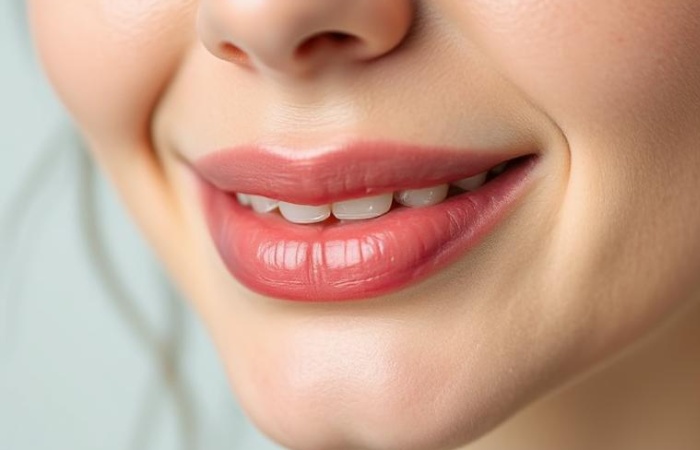Table of Contents
Introduction
Cold sores and angular cheilitis affect the mouth region separately because each has distinct origins that need exclusive treatment remedies. Angular cheilitis creates inflammation in the mouth corners, yet cold sores develop from the herpes simplex virus infection. The article gives detailed information about angular cheilitis and cold sore prevention and treatment by providing prevention related to various causes in combination with holistic therapeutic methods.
Understanding Angular Cheilitis

What is Angular Cheilitis? Angular cheilitis represents a skin infection that brings about painful mouth cracks and dryness affecting the mouth corners. Doctors refer to it both as angular stomatitis and perleche. The characteristic feature that separates angular cheilitis from cold sores is its inability to spread from one person to another.
- Angular cheilitis develop mainly because of saliva accumulation at the mouth’s sides that causes skin drying and subsequent breakage. This can be exacerbated by:
- Fungal infections, especially Candida.
- Bacterial infections, such as Staphylococcus.
- The condition can arise from inadequate nutrient intake which includes B vitamins and iron together with zinc.
- Ill-fitting dentures or misaligned teeth.
- Allergies or irritants.
- Underlying conditions like diabetes or immune disorders.
Symptoms: Angular cheilitis produce small blisters while causing stiffness and uneasiness, together with redness and puffiness of the corners of the mouth, dryness, cracking, swelling, and sores at these locations.
Prevention Strategies Tailored to Specific Causes
- For Fungal Infections: Preventing Candida overpopulation requires proper oral care to maintain good hygiene status. Dietary adjustments targeting yeast-supporting foods should also include research about how probiotics affect the oral microbial community balance.
- For Bacterial Infections: Those with bacterial infections must control their eczema symptoms because this skin condition raises their susceptibility to bacterial infections.
- For Nutritional Deficiencies: Your focus for treating nutritional deficiencies should be on eating a balanced diet while supplying adequate quantities of B vitamins along with minerals as well as iron and zinc. Consider supplementation if necessary.
- For Contact Dermatitis: People with contact dermatitis should identify which lip balm ingredients, foods, or environmental factors result in their condition. They need to avoid these specific irritants.
Holistic and Natural Treatment Approaches
For Angular Cheilitis:
- Regular cleaning of the involved region should be maintained while preventing the corners of the mouth from licking.
- Patients should exercise careful use of tea tree oil as a natural antifungal treatment.
- Patients can ease inflammatory reactions by applying aloe vera gel to the affected area.
- Consider herbal mouthwashes.
- Apply unscented and unflavored lip balms like petroleum jelly or virgin coconut oil.
For Cold Sores:
- Combine supplements, antiviral medications, and topical treatments.
- Explore lysine supplements.
- Try lemon balm extracts.
- Use propolis as a complementary therapy.
The Impact of the Oral Microbiome
A balanced makeup of oral bacteria acts to protect people from both angular cheilitis and cold sore outbreaks. The equilibrium of oral bacteria is affected by dietary choices alongside oral care routines and medicinal drugs, so individuals become more prone to developing these health issues. People should consume fermented foods using probiotic mouthwashes to build a healthy oral microbiome.
Psychological Impact and Coping Strategies
Patients experience emotional distress because angular cheilitis and cold sores quickly show up on their faces. The management of cold sore outbreaks requires both recognition of emotional stress and implementation of stress reduction techniques.
When to Seek a Specialist?
You should visit a dermatologist or dentist for medical help when your symptoms worsen, or your at-home remedies fail to improve the condition. In difficult situations, medical personnel need to arrange laboratory tests and diagnostic procedures and execute biopsies.
Prevention of Angular Cheilitis
- Avoid allergens and irritants.
- Eat a balanced diet and drink 6-8 glasses of water daily.
- Keep lips moisturized.
- Avoid licking lips.
- Avoid using expired makeup products.
Conclusion
Angular cheilitis, together with cold sores, represent separate medical conditions that require different methods for prevention and treatment. Knowledge of particular trigger factors combined with specific intervention methods enables people to successfully handle and enhance their life quality regarding these conditions.
